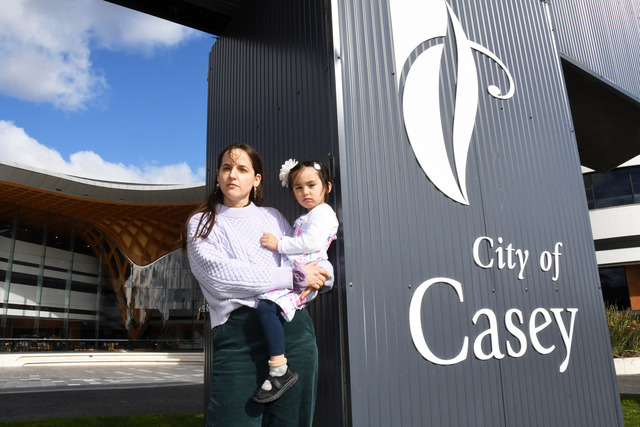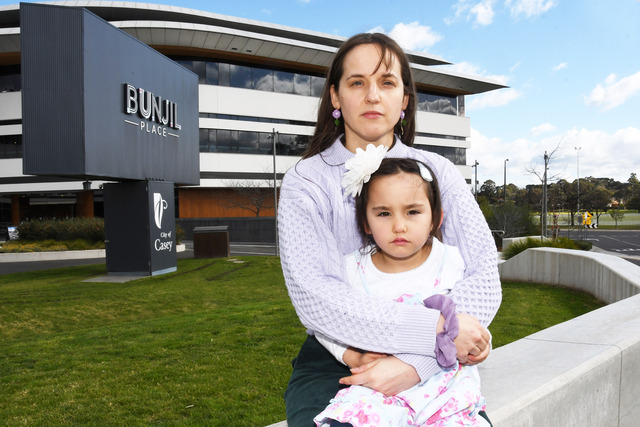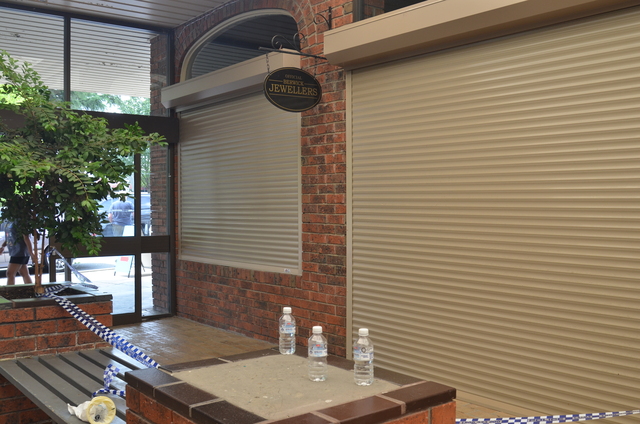A Casey ratepayer was shocked to learn that she has been placed under an Unreasonable Complainant Conduct (UCC) Register after sending no more than five emails to councillors and council executives in a week.
Casey Council’s UCC policy is in place to help the council manage behaviour from people making complaints. The policy aligns with the Victorian Ombudsman’s good practice guide.
Jillian Nambu, a mother of three, said she had been treated unfairly by Casey Council. She questioned whether it was a means to stop her from contacting councillors on community issues.
She is also calling for a review of the UCC policy ahead of its compulsory review in 2028.
She said the placement had been causing her a lot of stress, and she cried for two days after learning the news last week.
“I was crying because I’m not an aggressive person. I believe people deserve respect,” Ms Nambu said.
“I’m just there trying to bring up issues that I think are important, that the community cares about, and I care about.
“And then it made me feel like I had done something so horrible that I must be put on a register.”
In a notification letter to Ms Nambu on 20 June, a council officer notified her that her conduct had been found to be “unreasonable” under the following two categories:
• Unreasonable persistence – directly emailing the executive leadership team and councillors on numerous different occasions, rather than directing communication to Customer Service for processing
• Unreasonable demands – making demands for council staff to change processes or expectations around council operations, such as the council meeting registration process or public questions
The letter specified the history of the council’s dealings with Ms Nambu that eventually led to her placement under the UCC Register, including her emailed queries about the Council Meeting Registration Process, Youth Services Review, and Council Meeting public question time process.
Ms Nambu sent an email under the subject of “Youth Services” on Thursday 19 June, to a relevant council officer, all councillors, and several executive officers.
According to Ms Nambu, she raised a question regarding youth services at June’s Casey Council meeting, but believed she didn’t get the response she wanted.
“I asked a question at the council meeting, and I felt like it was a response but not an actual answer,” she recalled.
Ms Nambu sent another email on the same day, with the subject of “attendance requirement for reading of public questions and answers”. The email was sent to a generic council address, all councillors, and several executives.
“I agree that the safety of all attendees to council meetings must be taken seriously, and I appreciate it, thank you. However, I hope you are now considering new ways to allow full participation into the meetings by residents,” she wrote in her emails.
“Additionally, you must do something about the fact that residents must attend the council meeting in order for a public question to be read and responded to. I understand that all valid questions are still read and can be found in the minutes, however, it is democratic that ALL submitted questions are read in front of all attendees at council meetings…
“I urge the Council to commit to reading and responding to all submitted public questions, regardless of the resident’s ability to attend in person, starting from the next meeting.”
A day after these two emails, Ms Nambu was placed under the UCC Register.
Ms Nambu had also earlier initiated email chains on the proposed Hampton Park Waste Transfer Station to all the councillors and the executives in June.
But this topic did not seem to trigger the UCC policy, as it was not mentioned in the letter notifying her that she was on the UCC register.
Ms Nambu is still trying to understand the ramifications of her placement on the register.
The notification letter said Casey would begin reviewing her engagement with council officers, and the council would appreciate it if she could utilise Customer Service as a means of contacting Council.
“This will ensure that your enquiry is managed in line with the Council’s Customer Service Charter. In doing so, you will be provided with an RM number, which better allows staff and you to ensure that the enquiry is managed end-to-end efficiently and appropriately,” the letter states.
“Council request that you please cease contacting Council Officers and Councillors directly, as this leads to inefficiencies and duplication of responses.
“Failure to cease these behaviours may result in Council implementing additional measures in line with our Unreasonable Complainant Conduct Policy, such as taking more direct action regarding any further communications you have with Council.”
She was also encouraged to write to only her local ward councillor, not all councillors to avoid “duplication of workload”.
According to the UCC policy, the UCC Register allows the council to take steps like limiting contact to written communication, restricting which staff they can speak to, and, in rare cases, stopping contact altogether.
The policy states that these actions are only taken when necessary and are reviewed regularly.
Once aware of her placement under the UCC Register, Ms Nambu wrote to Casey Council to object to the decision. Councillors were also copied in.
She believed that her emails had not been unreasonably persistent nor unreasonably demanding, and the placement decision was made subjectively.
She also questioned why she should not directly email councillors.
“The City of Casey is our democratic local government, so why can’t people discuss democratic and inclusivity issues surrounding public questions and council meetings with the council?” she wrote.
“Also, why can’t these issues be discussed with elected councillors and council staff as part of a democratic government?
“Where does it say that people must contact customer service and never anyone else? I can’t find anywhere where it says not to email council staff. Please help me locate that information.
“Am I really not allowed to contact councillors? I thought they need to hear the voices of their residents to actually represent the residents. We live in a democracy.”
A council officer emailed her a day later, stating that they “acknowledge her advocacy and intention to represent the interests of children and the broader community”.
“However, after a review of the pattern and frequency of your recent correspondence, it was determined that the actions met the criteria outlined in the UCC policy.”
Casey’s Manager Communications and Corporate Governance, Chloe Casey said the council cannot comment on specific resident circumstances or management under UCC.
“The Unreasonable Complainant Conduct Policy was first endorsed on 22 June 2015. It explains what unreasonable behaviour from complainants looks like and outlines how Council can deal with it. The goal is to reduce the negative effects this kind of behaviour can have on staff, resources, and other people accessing Council services,” she said.
“Each case is looked at carefully. People are told in writing if any restrictions are placed on them, why it’s happening, and how they can ask for a review. Being on the register usually lasts for a year and is reviewed annually.”
When asked how many people are placed under the UCC Register, the council did not share the number.


















